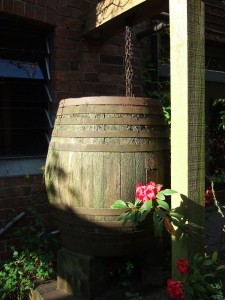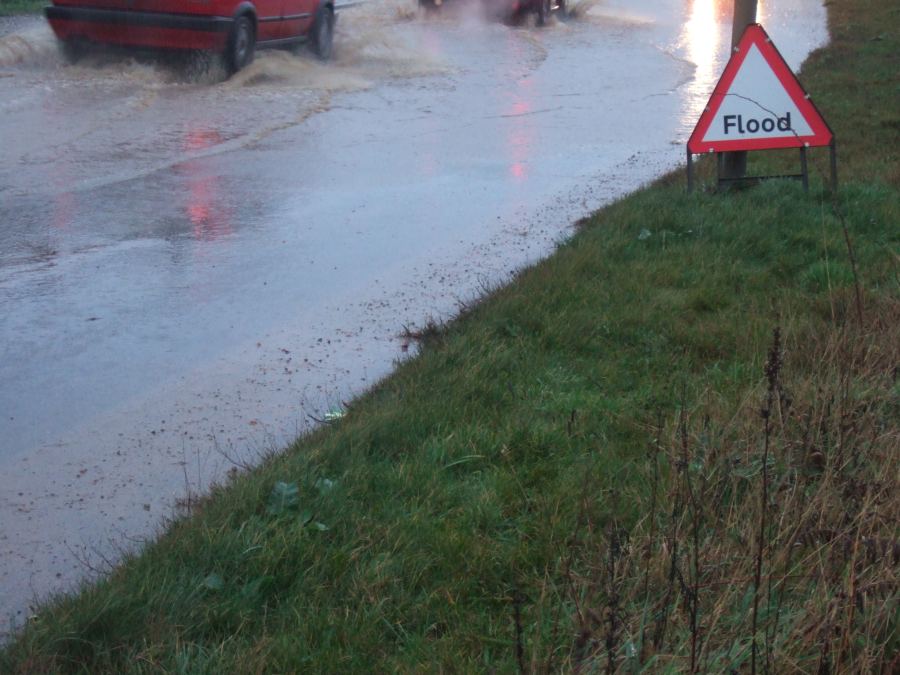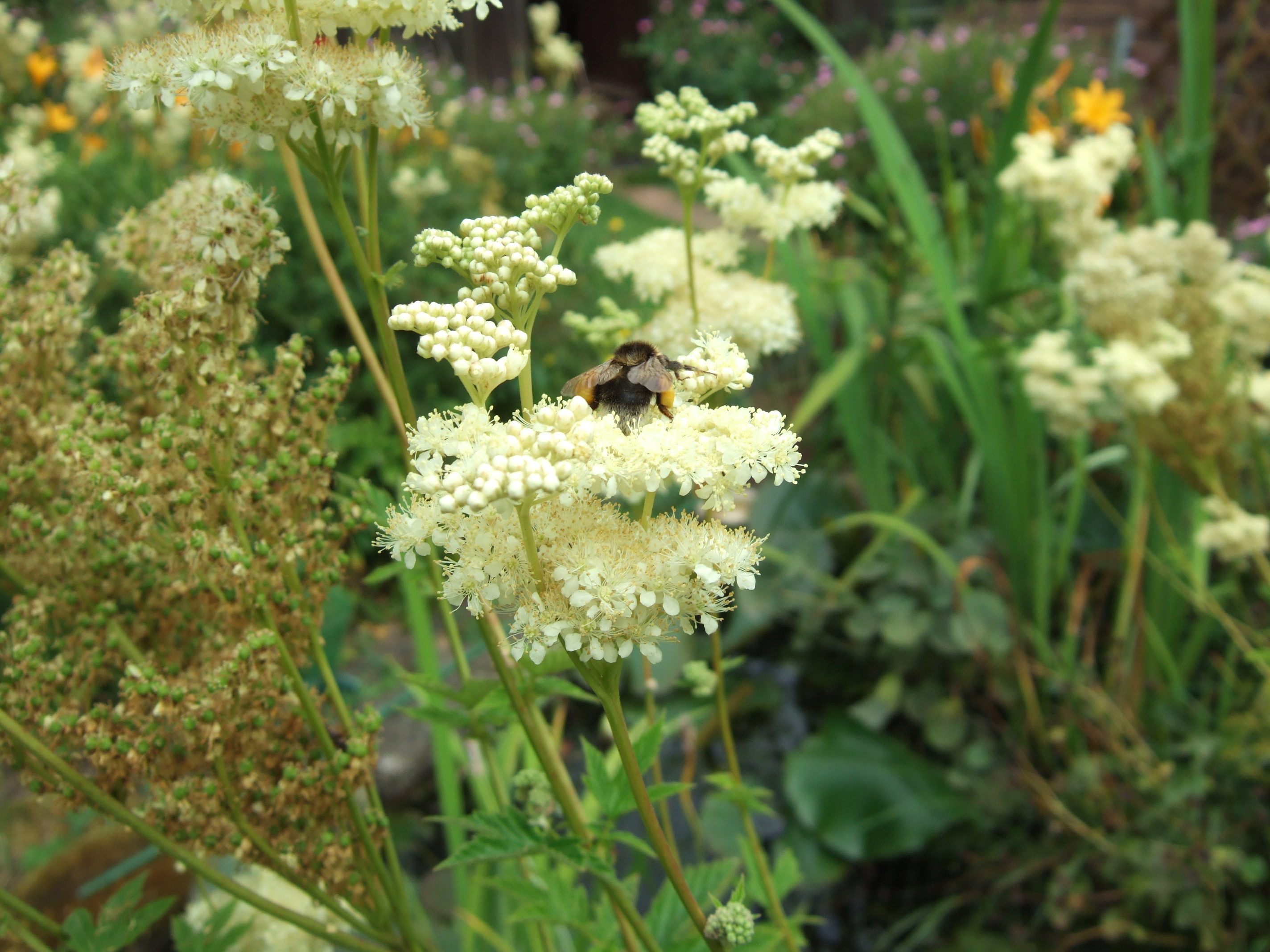Look after water
We can do our best to prevent catastrophic climate change, but all the greenhouse gases we’ve already added will mean some unavoidable climate change, and that will (indeed it already is) making our rainfall less regular and more variable, and here in Britain we’re likely to get drier summers. So we need to look after our water even more carefully.
If the land in our gardens and elsewhere isn’t looked after properly, if there’s no ground cover, if the soil organic matter has all been destroyed by cultivation, and if the soil is compacted, then rainwater can’t get into the ground but will run off and get wasted down the drain, causing soil erosion and pollution and flooding along the way.
So instead we can look after water:
- have a garden of plants and soil rather than a garden that’s full of buildings and paving;
- choose perennial plants (rather than annuals) because after they’ve established their roots they shouldn’t need watering again;
- choose water-thrifty plants which can survive without extra watering and can survive a few weeks without rain;
- put our plants in the ground rather than in pots, so that they can get their roots down far enough and out wide enough to where they can get water – and if we feel we must have some pots, choose big ones;
- keep the soil protected with trees, hedges, shrubs, ground-cover plants, and organic mulches, so that the soil stays moist;
- use nitrogen-fixing plants rather than synthetic nitrogen fertilizers, because excess nitrogen may cause the associations between plants and mycorrhizal fungi to break down, and then plants won’t have the mycorrhizal fungi which help them absorb water;
- collect the rainwater from the roofs of our houses and garden buildings and store it in waterbutts so that we can use it for young plants, or direct it into rain gardens from where it can seep into the soil and help to replenish the groundwater.
Every part of sustainable gardening can help every other part. Research published in 2015 (‘Potential roles of soil fauna in improving the efficiency of rain gardens used as natural stormwater treatment systems’ by Andrew S. Mehring and Lisa A. Levin) suggests that looking after soil may help to make rain gardens more effective, and so look after water, and so look after wildlife, and so on in a virtuous circle.



